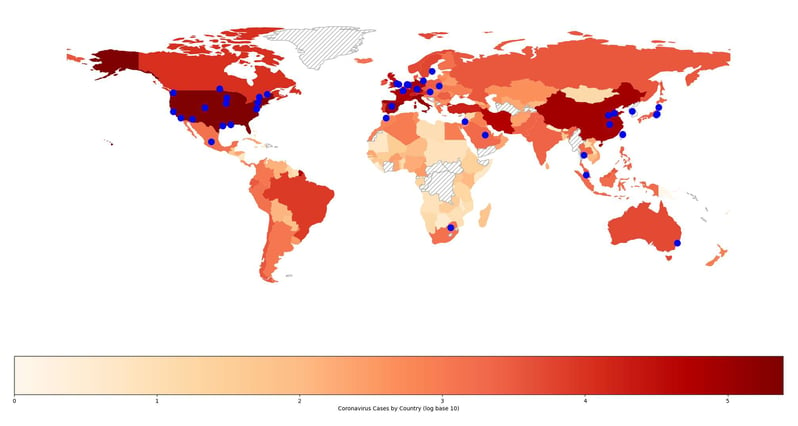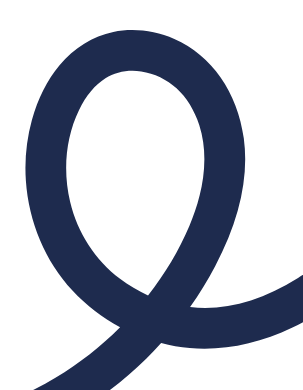In recent years, many companies have jumped on the AI bandwagon, claiming that they use it to solve...
Among many other things, the rapid spread of coronavirus has highlighted the importance of access to subject matter experts and global knowledge exchange. Using our AI, we’ve created a time-lapse visualization showing the spread of coronavirus across the world and the scientific community’s swift response to the outbreak.
Discover which geographies were quickest in launching COVID-19 clinical trials and the impact the global imbalance of knowledge has had on combating the pandemic.
We’ve developed AI search technology which identifies, qualifies, and solicits experts to connect them with organizations who need their specialist insights. In a previous blog post, we used our AI to identify the main institutions around the world who have worked on coronavirus and overlaid the data on outbreak numbers to visualize who holds the leading knowledge on coronavirus and where.
The time-lapse visualization shows the spread of coronavirus across the world which started in Wuhan, China. By mid-March, the epidemic had spread to Iran and Italy, after which it became classified officially as a pandemic by the World Health Organization. By April, the United States and Europe became the main outbreak clusters of the disease, with rapidly increasing number of cases and deaths. Countries such as South Korea and Japan, however, with their recent experience of SARS and other related infectious diseases, managed to keep fatalities far below the numbers seen elsewhere.
The latest countries to see large increases in the number of cases are Brazil, Russia, and Turkey.
Clinical trials into the efficacy of specific treatments for coronavirus infections initiated very early on during the outbreak, with research centers in China and the US taking the lead. By mid-March/April, European institutions also started conducting clinical trials by investigating a wide variety of medications and also potential vaccines. The speed at which the scientific community has responded to the coronavirus pandemic has been unprecedented and shows no sign of slowing down.
A time-lapse of when institutions (the blue dots) started working on COVID-19 overlaid on outbreak numbers from 23 January 2020 to 10th June 2020.
As shown by the time-lapse above, the scientific community has been swift in its response to coronavirus. However, it also highlights the significant global imbalance when it comes to accessing specialist knowledge of COVID-19, with the concentration of experts actively working on the virus located in the US, Western Europe, and China.
When facing global challenges, it’s imperative that we find improved ways to increase access to knowledge. This is why we advocate the use of AI, which isn’t bound by geography, to dismantle the outdated model of closed-loop expert searches to give all organizations equal opportunity to access the wealth of relevant global expertise on coronavirus quickly and effectively.





